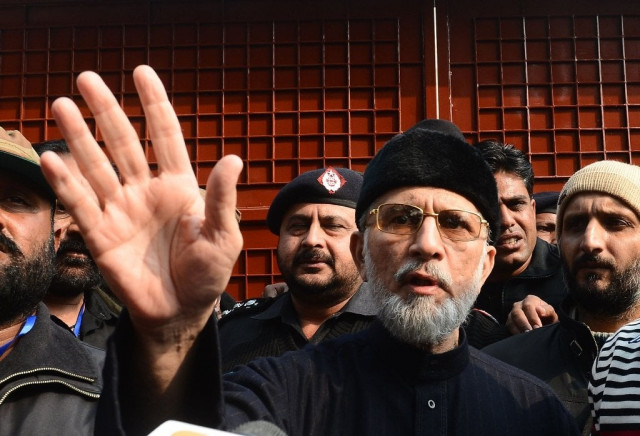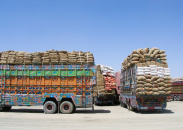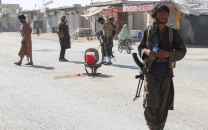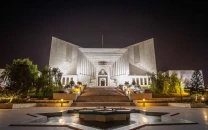Clashes as prominent cleric returns to lead 'revolution'
CAA spokesman says Qadri's flight had been diverted to Lahore "to ensure the safety of the passengers and aircraft".

Tahirul Qadri, who drew scores of supporters to a sit-in protest in Islamabad in January last year, is due to arrive a week after eight people were killed when his followers clashed with the police in of Lahore.
His return could add to the pressure on Prime Minister Nawaz Sharif's government at a sensitive time when the country's military is engaged in a major offensive against militants in North Waziristan.
Qadri has a large following in Pakistan but some analysts believe he is also supported by the country's powerful military establishment to keep civilian authorities in check.
Security was tight in Islamabad ahead of his arrival, with the government deploying armed personnel at all entry and exit points of the capital and blocking roads leading up to the airport with shipping containers.
A spokesman for Civil Aviation Authority told AFP Qadri's flight had been diverted to Lahore "to ensure the safety of the passengers and aircraft".
But Qadri's supporters, including a large number of women, managed to breach police cordons to arrive at the Islamabad airport overnight, chanting "Long live Tahir-ul-Qadri" and "revolution, revolution, Islamic revolution".
Surveillance helicopters flew overhead as police fired teargas at the crowd occupying the area outside the airport, an AFP reporter at the scene said.
Television footage showed Qadri's followers armed with sticks and bricks clashing with baton-wielding police.
Qadri had led the last protest for over four days during the tenure of the Pakistan Peoples Party (PPP) government four months before the May 2013 general election.
He had demanded the early dissolution of the government and implementation of a caretaker setup backed by the military and judiciary.
But despite intense media interest, the protest had little long-term impact -- Qadri ended his sit-in after talks with ministers and the election went ahead as planned.
Qadri is the founding leader of Minhaj-ul-Qur'an International (MQI), an organisation with branches in more than 90 countries and that works for the promotion of peace and harmony between communities.
His sudden and apparently well-financed emergence after years living in Canada was criticised as a plot by sections of the establishment -- particularly the armed forces -- to delay the elections and regain power.



















COMMENTS
Comments are moderated and generally will be posted if they are on-topic and not abusive.
For more information, please see our Comments FAQ